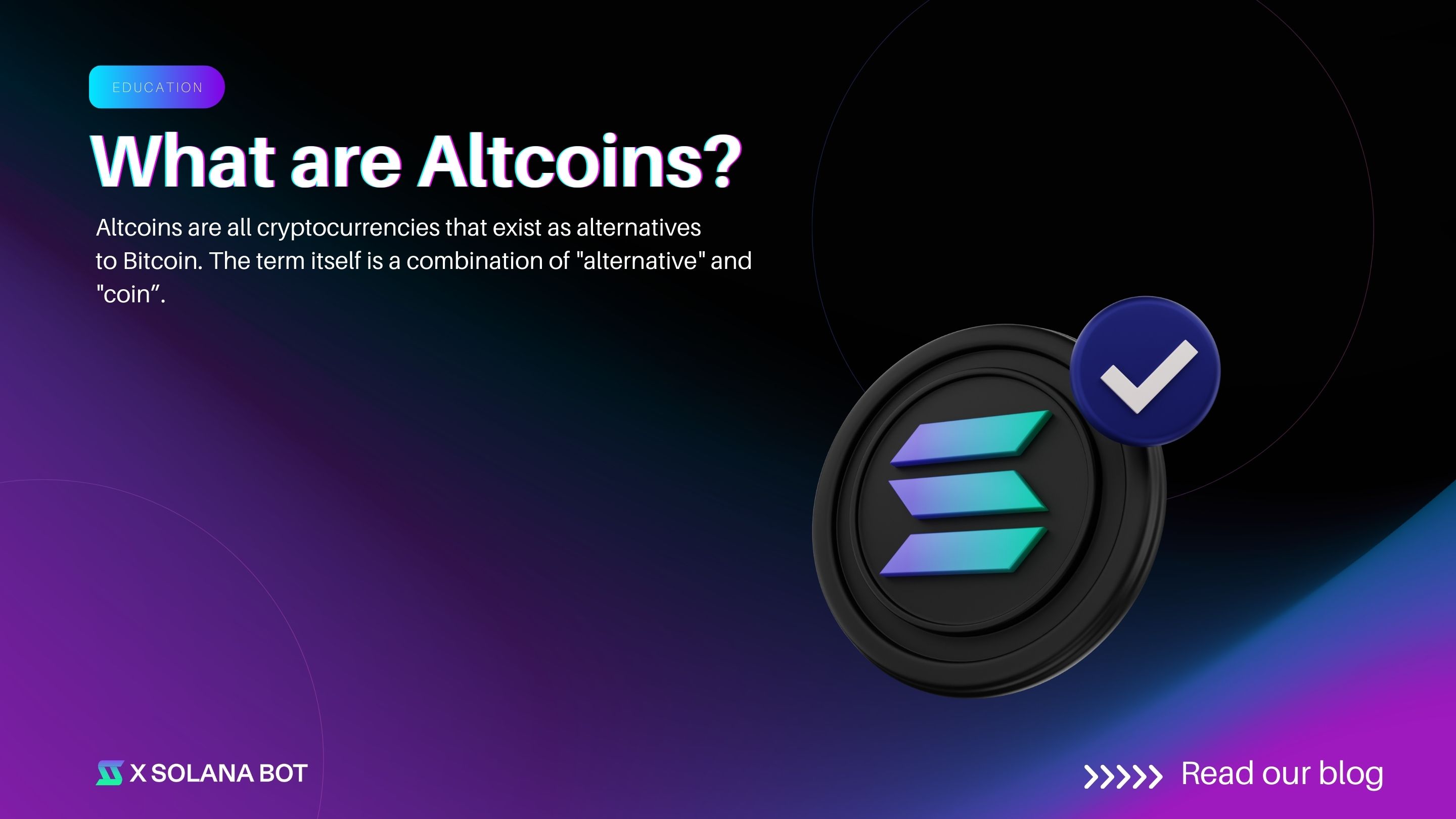Altcoins are all cryptocurrencies that exist as alternatives to Bitcoin. The term itself is a combination of "alternative" and "coin," referring to digital assets that seek to improve upon or differentiate themselves from Bitcoin in various ways. While Bitcoin remains the most dominant and widely recognized cryptocurrency, altcoins have gained significant popularity due to their unique features, enhanced scalability, and diverse use cases.
The birth of the first altcoin The first altcoin, Namecoin, was introduced in the year two thousand eleven. It was designed to improve decentralization in domain name registration, making it resistant to censorship. Although Namecoin did not achieve mainstream success, it set a precedent for the creation of new digital currencies, each offering distinct innovations in blockchain technology. Since then, thousands of altcoins have been developed, each with its own purpose and technological framework.
Solana – one of the most notable altcoins Among the many altcoins in circulation today, Solana has emerged as one of the most promising and technologically advanced. Launched in the year two thousand twenty, Solana aims to provide a fast, secure, and scalable blockchain network that can support a wide range of applications. Unlike traditional blockchain networks that struggle with slow transaction speeds and high fees, Solana introduces a unique consensus mechanism that allows it to process thousands of transactions per second, making it one of the fastest blockchain networks available.
The use cases of Solana and altcoins Altcoins like Solana serve a variety of purposes beyond simple peer-to-peer transactions. Many altcoins are designed to support decentralised finance, allowing users to participate in activities such as lending, borrowing, and staking without relying on traditional banks. Others are used in gaming, digital identity verification, and even the creation of non-fungible tokens, which have revolutionised the art and entertainment industries. Solana, in particular, has become a popular choice for developers building decentralised applications due to its high-speed capabilities and low transaction costs.
The technology behind Solana Solana distinguishes itself from other altcoins through its innovative technology. It uses a unique hybrid consensus mechanism that combines proof-of-stake with proof-of-history, enabling faster validation of transactions without compromising security. This approach significantly reduces latency and allows for unparalleled scalability, making Solana a preferred choice for high-performance blockchain solutions. Additionally, its robust ecosystem supports a growing number of developers and projects that continue to expand its functionality and adoption.
Altcoins play a crucial role in shaping the future of blockchain technology, providing alternatives to Bitcoin with enhanced functionalities and diverse applications. As innovations continue to evolve, cryptocurrencies like Solana demonstrate the potential for blockchain to revolutionise industries beyond finance, offering a decentralised and efficient foundation for digital transactions and applications.
